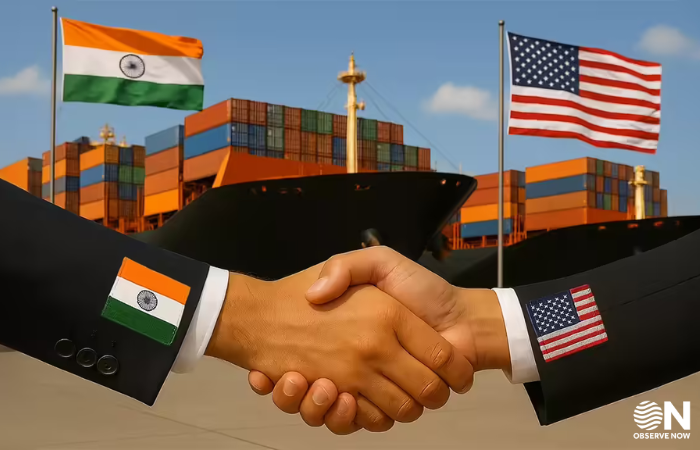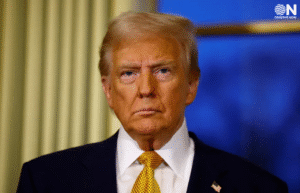India Poised to Accept 10–15% Tariff in Interim Deal as US Deadline Nears

India is reportedly preparing to accept a 10–15% tariff on select exports under an interim trade agreement with the United States, a move positioned ahead of looming duties and firmly ahead of tariffs faced by other nations such as Indonesia and Vietnam. New Delhi views this as a pragmatic compromise, aiming to secure favourable terms while mitigating the risk of steep duties encroaching on critical export segments.
Negotiations, now in advanced stages, are focused on slicing tariffs on a carefully selected range of Indian exports—likely machinery, chemicals, pharmaceuticals, and vehicles—while shelving politically sensitive sectors like dairy and wheat from concessions. The agreement is being framed as a “mini-deal” that avoids broad agricultural or market access stipulations but delivers immediate relief for key industrial output. A government official noted the US has “made it clear… the 10% base tariff will remain,” suggesting India may need to hold firm around duties in the low-teens rather than the zero-tariff outcome originally hoped for.
India is targeting an interim deal ahead of the US deadline—set for early August—after which reciprocal tariffs could leap to 26–27% on imports from countries lacking trade arrangements. A deal before July 31 would shield Indian exporters from that sharper escalation. A senior Indian delegation has been conducting intensive discussions in Washington, and the absence of a blanket tariff notice from the US suggests that both governments see rapid resolution as attainable.
While the deal reflects compromise, it also offers diplomatic reassurance. By securing a tariff range below that agreed by Indonesia (19%) and Vietnam (20%), India gains a relative competitive advantage. Additionally, the agreement maintains option value for a broader pact later in 2025 and sends a positive signal to investors amidst shifting global supply chains.
However, contention remains. India’s decision to insulate agriculture echoes its longstanding protection of small farmers, citing domestic economic concerns. Meanwhile, the United States has rebuffed India’s attempt to invoke WTO provisions to counter Section 232 auto tariffs—stating these are national security measures exempt from retaliatory scope.
This interim trade arrangement, if realised, reinforces a transactional yet strategic progression in US‑India economic ties. The deal would shield India against sudden tariff shocks, unlock near-term stability for exporters, and lay the groundwork for a potential full-fledged trade agreement later in the year.
















